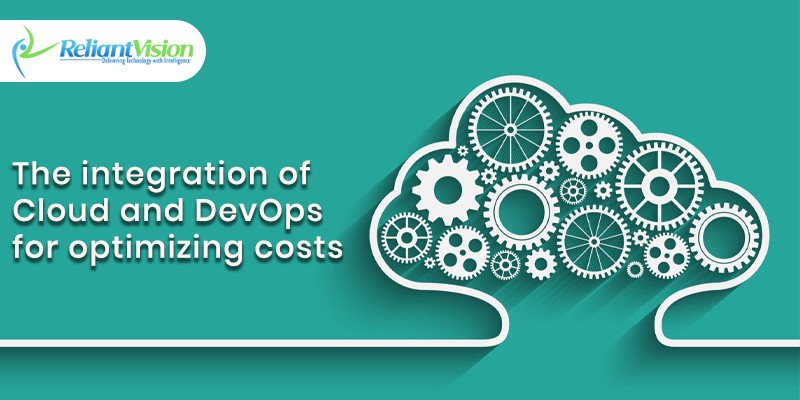Role of cloud & DevOps – An Overview
The cloud is changing the game for software delivery and operations by removing lot of the barriers and friction. As apps are moved to the cloud, it is a great time to update the hosting platform so that enterprises can take advantage of the latest cloud services. DevOps, on the other hand, is a software development and deployment practice used by businesses.
The aim of DevOps is to provide a continuous stream of minor improvements rather than a series of large launches. This process enables companies in creating better quality of software products seamlessly and with efficiency. The main benefits of DevOps in the current scenario includes-
- Infrastructure automation options
- Successful device release automation
- Continuous integration and distribution
- Agile systems allow for faster feature delivery.
- Fast problem solving
Teams in a DevOps environment use a variety of practices to automate processes that were previously manual and sluggish. They make use of the most up-to-date technologies to develop software as quickly as possible.
The relationship between DevOps and Cloud – A brief overview
Although the relationship between DevOps and Cloud Computing is not easily reconciled—DevOps is about process and process development, whereas cloud computing is about technology and services—they have become two of the ways businesses can accomplish this required transformation.
In the world of agile enterprise, both cloud and DevOps have a number of advantages. Cloud technology allows businesses to access an infinite number of features and solutions at their own pace. The amount of functionality a company has access to in the cloud is unlimited.
DevOps, on the other hand, promotes an agile atmosphere for all parties involved. In terms of speed and efficiency, both solutions have advantages to consider. As cloud and DevOps come together, they complement each other’s strengths, resulting in a more convincing offering.
A symbiotic relationship between DevOps and cloud
IT businesses have migrated to the remote working environments and as such are using cloud technologies to the fullest during the current pandemic. Azure, AWS, and Google Cloud are all powerful cloud services that are helping companies run software applications more quickly. IT companies are concentrating on enforcement and business requirements with cloud tools and technologies.
Businesses will benefit from combining DevOps and Cloud computing because it ensures faster application growth, lower development costs, better understanding of evolving customer demands, and faster deployment, among other things.
DevOps helps businesses eliminate gaps between teams, deliver products faster, and increase efficiency in order to increase employee productivity while working remotely. When an organization implements DevOps properly, a lot of the latency and inefficiency in conventional software development teams can be removed.
With centralized cloud computing and scalability, DevOps offers a standard platform for implementation, testing, production and integration. DevOps gives teams the freedom to grow and adapt to changing demands easily.
Making the most out of cloud DevOps – Final thoughts
The global DevOps Market is forecasted to grow at a rate of 18.3% to USD 17.27 Billion in 2027. All aspects of the cloud have grown increasingly popular in recent years.
Companies of all sizes can see that a cloud environment gives them access to the flexibility and scalability to grow at a pace that is right for them. DevOps has become an integral part of any organization’s cloud-native strategy. Companies first need to migrate software to the cloud on site or off-site.
Numerous application applications need to be considered and assessed that can be further divided into micro services, and then workloads containerized and container orchestration platforms established. Cloud native is now core to bringing innovation to market faster. The key to a successful transition is via incremental steps.

